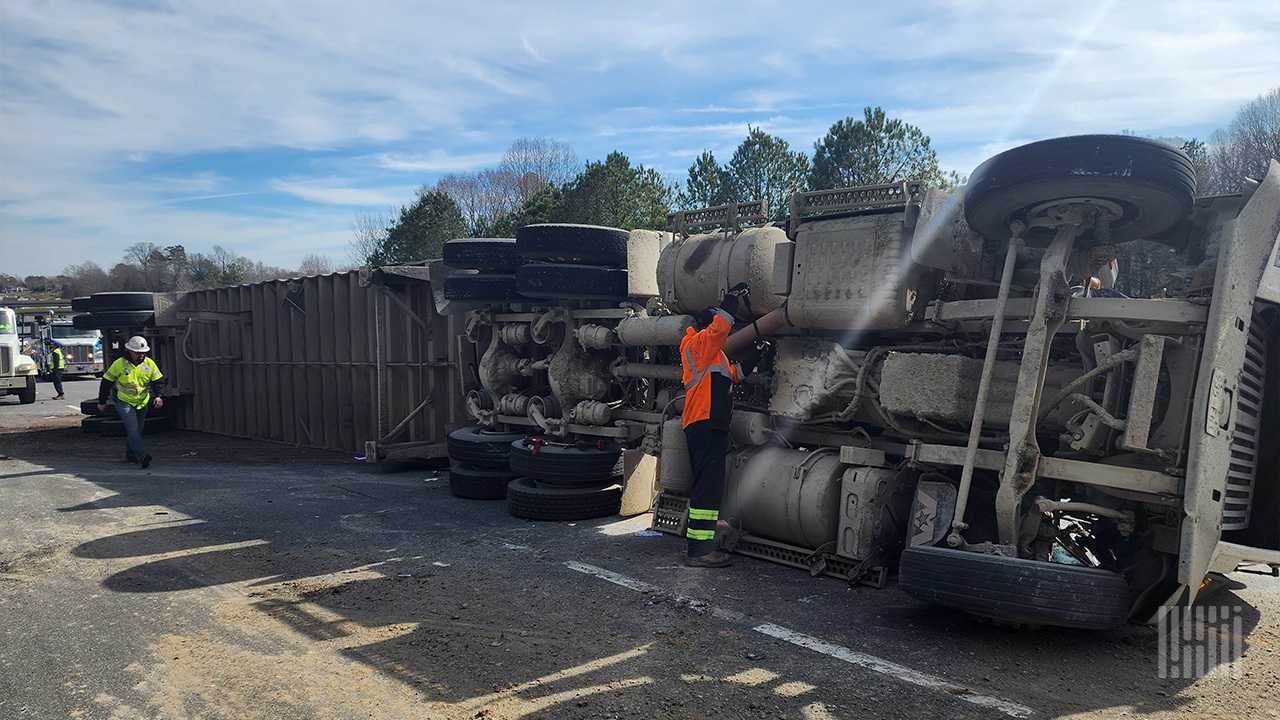FMCSA asettaa välittömiä rajoituksia muun kuin asuinvaltion CDL-ajoluville
Liikenneviranomaisten liittovaltion turvallisuusvirasto (FMCSA) on julkaissut väliaikaisen hätäsäännön, joka tiukentaa ammattikuljettajien ajolupien (CDL:t), jonka omistavat henkilöt, joiden pysyvä asuinpaikka ei ole siellä. Tämä toimenpide on nopea vastaus viimeaikaisiin kuolemaan johtaneisiin onnettomuuksiin ja järjestelmällisiin lupien myöntämisessä esiintyneisiin puutteisiin useissa osavaltioissa, mikä johtaa merkittäviin muutoksiin, jotka ohittavat tavallisen pitkän sääntöjen laatimisprosessin.
Mitä muutoksia on tulossa muun kuin asuinvaltion CDL-kelpoisuuteen?
Uusi sääntö rajoittaa välittömästi 29. syyskuuta alkaen pysyvästi asettumattomien hakijoiden CDL-kelpoisuuden tiettyihin viisuminhaltijoihin – eli ulkomaalaisiin, joilla on H-2A maataloustyöntekijöiden viisumit, H-2B-väliaikaiset, muut kuin maataloustyöntekijöiden viisumitja E-2-sijoittajaviisumi. Pelkkä pitäminen Työkykykortti (EAD) ei riitä enää näiden lupien hankkimiseen.
FMCSA:n jyrkkä suunnanmuutos vastaa “kahden rintaman kriisiin”: laajoihin kelpoisuusvaatimuksiin yhdistettynä osavaltioiden kyvyttömyyteen valvoa asianmukaista CDL-ajolupien myöntämistä. Paljastuneita ongelmia ovat muun muassa virheelliset ajolupien myöntämiset Kaliforniassa, jossa noin neljäsosa näistä ajoluvista myönnettiin määräysten vastaisesti. Vastaavia rikkomuksia on ilmennyt myös Coloradossa, Pennsylvaniassa, Etelä-Dakotassa, Texasissa ja Washingtonissa.
Turvallisuusriskit käännekohtana
Tammikuun ja nykyhetken välisenä aikana viisi erillistä onnettomuutta, joihin on osallistunut muualla kuin asuinpaikassa asuvia CDL-kortin haltijoita, vaati traagisesti 12 ihmishenkeä ja johti 15 muun loukkaantumiseen. Joissakin tapauksissa kuljettajat eivät olisi olleet kelpoisia uusiin määräyksiin perustuen.
| Päivämäärä | Sijainti | Kuolemat | Tapahtumakatsaus |
|---|---|---|---|
| 12. elokuuta 2025 | Florida | 3 | Rekkakuski, jolla ei ollut laillista maahanmuuttostatusta, aiheutti kuolemaan johtaneen kolarin Florida Turnpike -tiellä yrittäessään laittomasti U-käännöstä; osallisena pakettiauto, joka jäi perävaunun alle. |
| 14. maaliskuuta 2025 | Austin, Texas | 5 | Seitsentoista ajoneuvon kolari; kuljettajalle myönnetty virheellisesti tavallinen CDL-ajolupa (Commercial Driver's License), häneltä puuttui lääketieteellinen todistus eikä hän noudattanut työaikarajoituksia ennen kolaria. |
Nämä tapahtumat korostavat FMCSA:n huolta siitä, että nykyinen, muussa kuin kotivaltiossa myönnettyjen CDL-ajokorttien järjestelmä on ollut “vaarallisen salliva” lisäten riskejä riippumatta nykyisten standardien noudattamisesta.
Vaikutukset osavaltioille ja lupaviranomaisille
Sääntö vaatii, että kaikkien ei-kotipaikkaisten CDL-ajokorttien myöntäjien on välittömästi lopetettava korttien myöntäminen, kunnes ne osoittavat täyttävänsä täysin uudet vaatimukset. Keskeisiä täytäntöönpanomääräyksiä ovat:
- Varmennus Yhdysvaltain sisäministeriön kautta SAVE-järjestelmä (Systemaattinen ulkomaalaisten oikeuksien todentamisjärjestelmä),
- Pakollinen henkilökohtainen lisenssien uusiminen vuosittain,
- Sovellettavien asiakirjojen säilyttäminen vähintään kahden vuoden ajan,
- Selkeästi merkityt lisenssit, joilla ei ole kotipaikkaa, ja näkyvä “non-domiciled” -teksti itse lisenssissä.
Osavaltioille aiheutuu arviolta noin 70 000 dollarin (USD) kustannukset vaatimustenmukaisuudesta ensimmäisenä vuonna, mikä tekee yhteensä noin 3,2 miljoonaa dollaria (USD) valtakunnallisesti 46 asianomaisessa osavaltiossa.
Kuka on edelleen oikeutettu?
Hyväksyttyjen kuljettajien määrän odotetaan supistuvan huomattavasti nykyisestä noin 200 000:sta noin 6 000:een vuodessa tiukempien viisumivaatimusten myötä. Säännös nimenomaisesti sulkee pois ryhmät, kuten turvapaikanhakijat, pakolaiset ja DACA:n saajat, vaikka heillä olisi työluvat muualla.
Odotettavissa oleva vaikutus toimialaan ja mukautuminen
FMCSA on vakuuttunut siitä, että rahtialan toimijat sopeutuvat pienempään määrään ei-kotipaikkaisia CDL-kortin haltijoita. Heidän luottamuksensa perustuu historialliseen ennakkotapaukseen, jossa kuljetusala reagoi joustavasti COVID-19-pandemiaan ajajien ja kuljetusliikkeiden määrän kasvaessa kysynnän tyydyttämiseksi.
Ulkomailla pysyvästi asuvat kuljettajat, joita muutos koskee, muodostavat noin 5 % aktiivisista osavaltioiden välisistä CDL-kuljettajista, ja virasto ennakoi vaiheittaista poistumista kahden vuoden aikana, kun nykyiset valtuudet vanhenevat. Tämän lähestymistavan tarkoituksena on estää välittömät markkinahäiriöt ja antaa autoliikkeille aikaa mukauttaa rekrytointi- ja henkilöstöstrategioitaan.
Tiukemmat dokumentointi- ja todentamisstandardit
Ennen tätä sääntöä hakijoilta vaadittiin vain voimassa oleva EAD-kortti tai ulkomaan passi ja hyväksytty I-94-lomake. Nyt ulkomaalaisten hakijoiden on täytettävä kolme nimenomaista asiakirjatarkistusta:
- Voimassa oleva ulkomaanpassi,
- Voimassa oleva I-94/I-94A-lomake, joka vahvistaa viisumiluokan yhdeksi määritellyistä kolmesta tyypistä,
- vahvistaminen kautta SAVE-järjestelmä oikeudellisen aseman vahvistaminen.
Miksi hätätila-asetus?
FMCSA ohitti tavallisen kuulemismenettelyn, koska viraston mukaan muutosten julkistaminen etukäteen aiheuttaisi ei-hyväksyttyjen ajolupahakemusten tulvan viime hetkellä, mikä lisäisi turvallisuusriskejä. Virasto viittasi aiempaan kokemukseen aloittelevien kuljettajien koulutussäännöistä, jotka johtivat CDL-hakemusten määrän kasvuun juuri ennen noudattamisen määräaikoja.
Yhteenveto FMCSA:n uusista ulkomailla asuvien CDL-ajokorttien rajoituksista
| Aspect | Aikaisempi standardi | Uusi vaatimus |
|---|---|---|
| Kelpoisuusasiakirjat | EAD tai ulkomaan passi + I-94-lomake | Voimassa oleva ulkomaanpassi, I-94 -lomakkeessa mainittu erityinen viisumiluokka, SAVE-järjestelmän vahvistus |
| Sallitut viisumityypit | Laaja, EAD-kortin haltijat mukaan lukien | Vain H-2A, H-2B, E-2 -viisumin haltijat |
| Uusinnat | Vaihtelevat valtiolliset käytännöt | Vuosittainen henkilökohtainen uusiminen on pakollinen |
| Vaatimustenmukaisuuden varmistus | Ei yhdenmukaisesti täytäntöönpantu | PAKOTLLINEN tallennusjärjestelmän käyttö |
| Lisenssin ulkoasu | CDL-vakiomuoto | “Ei kotikuntaa” on oltava näkyvissä etupuolella |
| Valtion vastuu | Vakiomenettelytavat | Keskeytä myöntäminen, kunnes vaatimustenmukaisuus on dokumentoitu |
Laajempaa kuvaa: turvallisuus ja logistiikka
CDL-kortin haltijoiden tiukat pätevyysvaatimukset ovat ratkaisevan tärkeitä paitsi yleisen turvallisuuden myös tavaroiden luotettavan liikkuvuuden varmistamiseksi koko maassa. Kaupallinen rahti, pakettien toimitus ja raskas kuljetus ovat kaikki riippuvaisia pätevistä kuljettajista, jotka täyttävät tiukat lupaehdot. Tämä sääntö vahvistaa vastuuvelvollisuuden ketjua logistiikka-alalla rekrytoinnista ja koulutuksesta lähetykseen ja toimitukseen. Kun kuljettajan valtuudet ovat vankat, koko huolinta- ja jakeluekosysteemi toimii sujuvammin, mikä minimoi riskit, jotka voivat heijastua toimitusketjuun.
Henkilökohtainen kokemus vs. arvostelut
Vaikka hyvin dokumentoidut näkemykset ja asiantuntija-arviot tarjoavat arvokkaita näkökulmia, mikään ei vedä vertoja omakohtaiselle kokemukselle sen arvioinnissa, miten säädösmuutokset vaikuttavat päivittäiseen toimintaan. Alustat, kuten GetTransport.com tarjoaa läpinäkyvän ikkunan nykyisille kuljetus- ja logistiikkamarkkinoille ja esittelee kustannustehokkaita ja luotettavia kuljetusvaihtoehtoja maailmanlaajuisesti. Olitpa muuttamassa toimistoa tai kotia, kuljettamassa suurikokoista rahtia tai hallinnoimassa ajoneuvotoimituksia, voit saada kilpailukykyisen hinnoittelun ja monipuoliset valinnat, jotka auttavat sinua välttämään kalliita virheitä ja häiriöitä.
GetTransport.com erottuu yhdistämällä edullisuuden ja maailmanlaajuisen kattavuuden, mikä tekee muuten monimutkaisesta rahdin varaamisesta yllättävän suoraviivaista. Oletko valmis navigoimaan kehittyvissä määräyksissä ja logistisissa haasteissa? Varaa kyyti osoitteessa GetTransport.com ja koe käyttämisen helppous itse.
Päätelmä
FMCSA:n hätätoimenpide merkitsee merkittävää ulkomailla asuville myönnettävien CDL-ajolupien ehtojen tiukentamista, jonka taustalla ovat turvallisuuteen liittyvät huolet kuolemaan johtaneiden onnettomuuksien ja lupien myöntämisessä havaittujen puutteiden vuoksi. Rajoittamalla kelpoisuuden koskemaan tiettyjä viisuminhaltijoita ja asettamalla tiukkoja vaatimuksia osavaltioiden noudattamiselle hallinto pyrkii parantamaan yleistä turvallisuutta aiheuttamatta äkillisiä häiriöitä rahtialalle. Osavaltioiden on otettava käyttöön henkilökohtaiset uusimiset, asiakirjojen säilyttäminen ja vankka viranomaistarkastus, mikä tekee CDL-järjestelmästä läpinäkyvämmän ja luotettavamman.
Nämä toimenpiteet ovat ratkaisevia luotettavan kuljetusalan työvoiman ylläpitämiseksi, mikä tukee laajaa rahti-, tavara- ja pakettitoimitusverkostoa valtakunnallisesti. Logistiikkapalveluita tarvitseville yrityksille ja yksityishenkilöille näiden muutosten ymmärtäminen auttaa ennakoimaan mahdollisia muutoksia kuljettajien saatavuudessa ja rahtitoiminnassa. GetTransport.comin kaltaiset palvelut sopivat täydellisesti näihin uusiin realiteetteihin tarjoamalla tehokkaita, edullisia ja skaalautuvia toimitus- ja muuttoratkaisuja, mikä yksinkertaistaa rahdin kuljetusta, kuljetuspalveluita ja siirtotarpeita saumattomasti.

 FMCSA tiukentaa ulkomaalaisten rekkakuskien ajolupien kelpoisuusvaatimuksia kuolemaan johtaneiden onnettomuuksien jälkeen">
FMCSA tiukentaa ulkomaalaisten rekkakuskien ajolupien kelpoisuusvaatimuksia kuolemaan johtaneiden onnettomuuksien jälkeen">